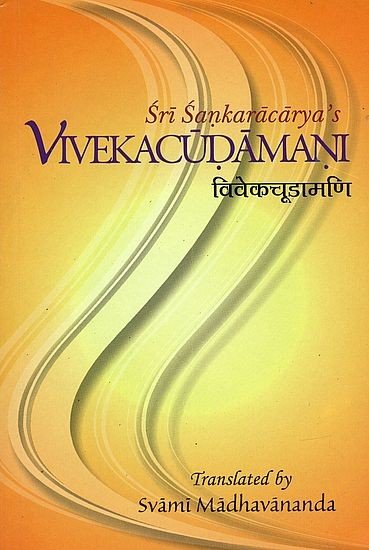Vivekachudamani
by Shankara | 1921 | 49,785 words | ISBN-13: 9788175051065
The Vivekachudamani is a collection of poetical couplets authored by Shankara around the eighth century. The philosophical school this compilation attempts to expose is called ‘Advaita Vedanta’, or non-dualism, one of the classical orthodox philosophies of Hinduism. The book teaches Viveka: discrimination between the real and the unreal. Shankara d...
Verse 521
ब्रह्मप्रत्ययसन्ततिर्जगदतो ब्रह्मैव तत्सर्वतः
पश्याध्यात्मदृशा प्रशान्तमनसा सर्वास्ववस्थास्वपि ।
रूपादन्यदवेक्षितं किमभितश्चक्षुष्मतां दृश्यते
तद्वद्ब्रह्मविदः सतः किमपरं बुद्धेर्विहारास्पदम् ॥ ५२१ ॥brahmapratyayasantatirjagadato brahmaiva tatsarvataḥ
paśyādhyātmadṛśā praśāntamanasā sarvāsvavasthāsvapi |
rūpādanyadavekṣitaṃ kimabhitaścakṣuṣmatāṃ dṛśyate
tadvadbrahmavidaḥ sataḥ kimaparaṃ buddhervihārāspadam || 521 ||521. The universe is an unbroken series of perceptions of Brahman; hence it is in all respects nothing but Brahman. See this with the eye of illumination and a serene mind, under all circumstances. Is one who has eyes ever found to see all around anything else but forms? Similarly, what is there except Brahman to engage the intellect of a man of realisation?
Notes:
[Series......Brahman— Existence, Knowledge, and Bliss which are the Essence of Brahman can be found, upon analysis, as underlying, every perception of ours. By another way of reasoning, the world is simply Brahman seen through a veil of name and form, which are contributed by the mind. It is X + mind, as Swami Vivekananda has put it.
One who has eyes—suggests a discriminating man whose view of life will be different from that of the ordinary man. Hence he can generalise the objective world as so many forms. ‘Form’ implies ‘colour,’ which also is a meaning of the word ‘Rupa.’]
